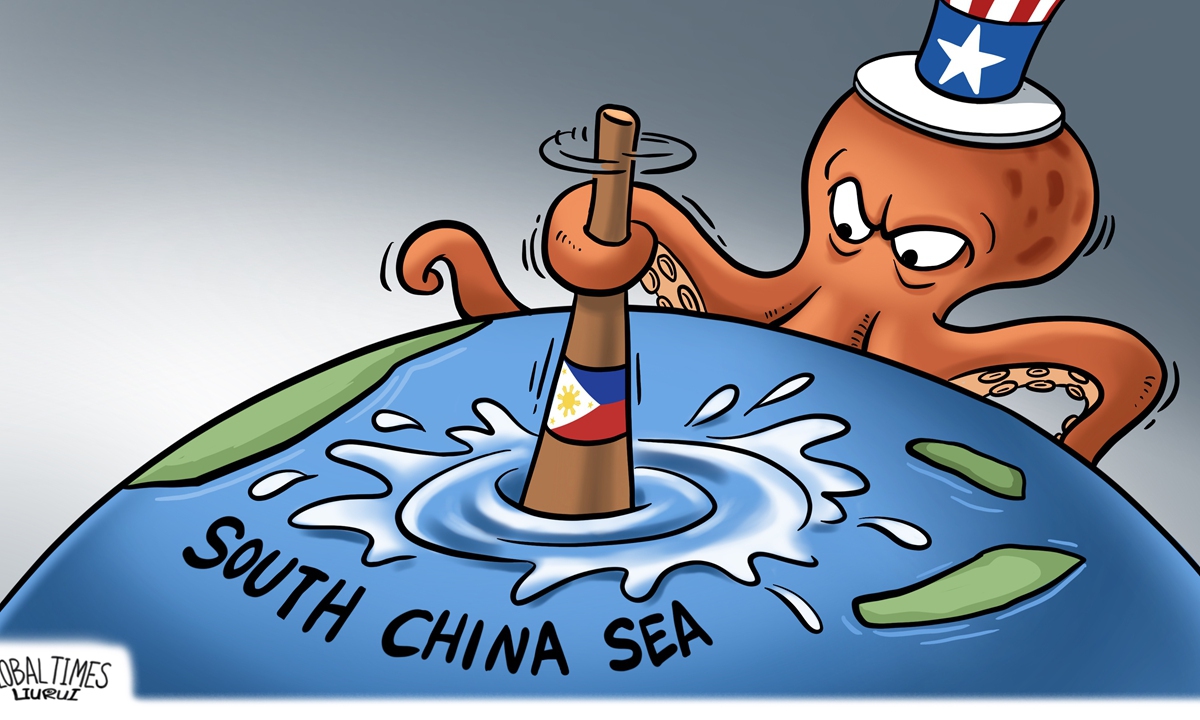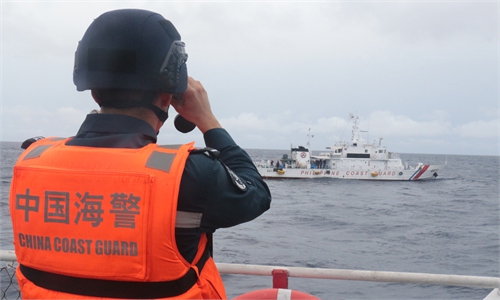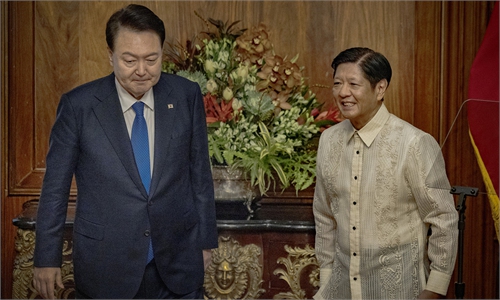
US in South China Sea Illustration:Liu Rui/GT
Commenting on the US and the Philippines' latest large-scale joint drills with the participation of US allies, Chinese observers on Wednesday said Manila is "relying on the power of others to embolden itself," which comes from Washington's indulgence and facilitation.
The Philippines' claim that it faces "would-be aggressor" was lying, and the joint drills are detrimental to regional peace and stability, observers said.
The Kamandag exercises have been held annually since 2017. The eighth edition this year started on Tuesday and involves more than 2,000 of American troops and Filipino soldiers and personnel. US allies Australia, the UK, Japan, South Korea and France also participated, the Philippine Marine Corps said.
Chinese military expert Zhang Junshe told the Global Times on Wednesday that this year saw the largest number of participating countries in the Kamandag series of exercises.
The Philippines hopes to make use of the power of others to embolden itself, and this is realized through US facilitation behind the scenes, Zhang said. The other participating countries are all staunch allies of the US, and there is no doubt they are responding to the US' "Indo-Pacific Strategy" and forming alliances to support the Philippines.
The exercises include island-based exercises in amphibious landings, live fire and humanitarian assistance, according to media reports.
Philippine Marine Corps commandant Major General Arturo Rojas stressed at Tuesday's opening ceremony in Manila that Kamandag has been long planned, and has "nothing to do with whatever is happening in the region."
"It's a coastal defense doctrine. The doctrine says that a would-be aggressor might be directed toward our territory," Filipino exercise director Brigadier-General Vicente Blanco told reporters.
Such claims are deceiving the Philippines itself and the international community as the country is clearly not facing any external invasion threats at the moment, Zhang said.
The Philippines' hope to showcase the "external support" it has received to bolster its provocative actions in the South China Sea, while the US aims to draw the Philippines in as a "pawn" to contain China, Zhang said.
Japan sent 80 soldiers, 30 more than the previous year, and the most after the US and the Philippines, Kyodo News reported. More Japanese troops will participate once the reciprocal access agreement (RAA) between Japan and the Philippines is approved, Kyodo cited Philippine commander Rojas as saying.
Zhang pointed out that Japan has an extraordinary ambition among the other participants. The emphasis on Japan's presence is an attempt to show loyalty to the US while Tokyo seeks to break the "peace constitution" restrictions and deploy combat forces overseas.
Frequent US-Philippine drills in the South China Sea are not conducive to peace and stability, but only instigate the Philippines to initiate more provocations, experts said.


